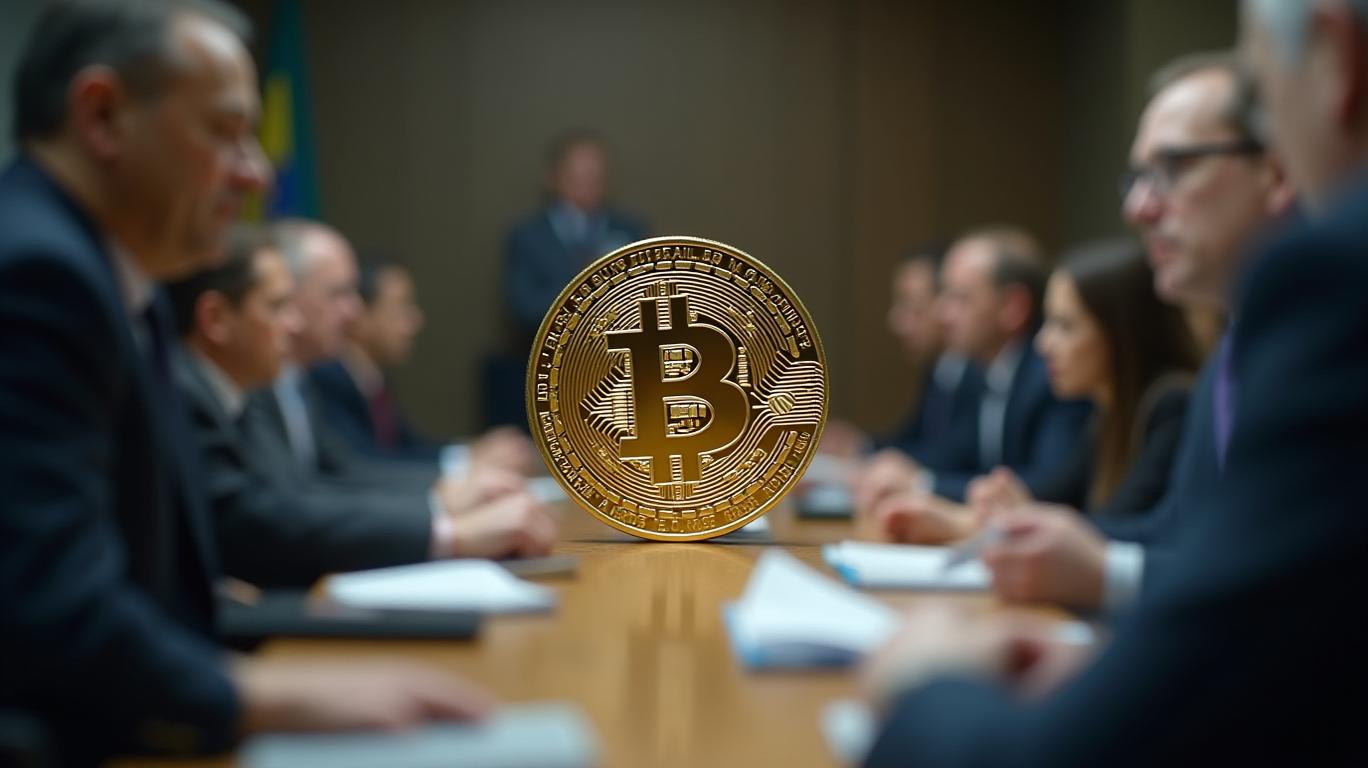Brazil Considers 5% Bitcoin Allocation to $366 Billion Reserves
Brazil is exploring the possibility of incorporating Bitcoin into its foreign reserves as part of a broader financial strategy aimed at enhancing economic stability. Pedro Giocondo Guerra, the chief of staff to Brazil’s vice president, has advocated for the establishment of a “Strategic Sovereign Bitcoin Reserve,” describing Bitcoin as “the gold of the internet” and highlighting its potential for efficient and secure wealth storage.
This initiative is not new; it builds on a proposal by Brazilian lawmaker Eros Biondini from the Liberal Party. Biondini suggested allocating up to 5% of the country’s foreign reserves to Bitcoin investments. With Brazil’s total reserves amounting to $366 billion, this would translate to approximately $18.3 billion being redirected to cryptocurrency. The Economic Development Committee of the Lower House is currently evaluating this proposed bill.
Guerra argues that Bitcoin’s decentralized nature and fixed supply make it an attractive option for national reserves. Unlike fiat currencies, which governments can produce in unlimited quantities, Bitcoin operates on a deflationary system. This characteristic, Guerra contends, provides protection against inflation and currency devaluation. He also noted that the U.S. government is developing a strategic cryptocurrency reserve system, indicating a global trend towards integrating digital assets into national financial strategies.
Brazil is not alone in considering Bitcoin for its national reserves. ElEL-- Salvador made headlines in 2021 when it adopted Bitcoin as a legal tender, a move that sparked both support and opposition. The Brazilian plan, however, emphasizes transparency and accountability as crucial components for gaining public and political backing.
The proposed Bitcoin reserve system in Brazil aims to achieve several objectives. It seeks to diversify financial assets, stabilize currency rates, and promote blockchain technology across public and private institutions. Additionally, Brazil’s Central Bank Digital Currency (CBDC), known as DREX, requires a robust backup solution, which the Bitcoin reserve could provide.
The new legislation outlines a framework for acquiring Bitcoin while ensuring adherence to financial responsibility standards. The government will be required to submit management reports on the reserve to Congress twice annually. Transparent oversight and accountability are seen as essential for garnering public and political support.
The debate over Bitcoin’s role in Brazil’s financial system is gaining momentum amid global economic uncertainty. Factors such as inflation, global instability, and concerns over U.S. dollar control have driven many nations to explore alternative financial solutions. Lawmakers view Bitcoin as a potential tool for Brazil to gain a competitive edge in the digital economy.
However, not all legislators are in favor of using Bitcoin in foreign reserves. Critics point out that Bitcoin’s volatile price behavior poses risks to the stability of national reserve systems. Unlike traditional assets such as gold or foreign currencies, Bitcoin’s value can fluctuate significantly over short periods, potentially compromising financial security and economic performance.
The discussion on integrating Bitcoin into Brazil’s foreign reserves continues, despite the challenges. If approved, this bill would position Brazil as a leading economy embracing Bitcoin as a formal part of its financial system. Future developments will reveal whether this policy change enhances Brazil’s economic standing or exposes it to new risks. Currently, government leaders are carefully weighing the benefits and drawbacks of implementing Bitcoin nationwide.

Quickly understand the history and background of various well-known coins
Latest Articles
Stay ahead of the market.
Get curated U.S. market news, insights and key dates delivered to your inbox.



Comments
No comments yet